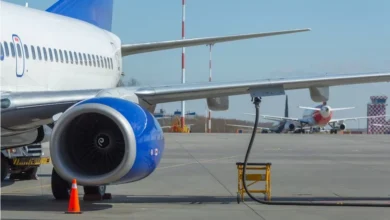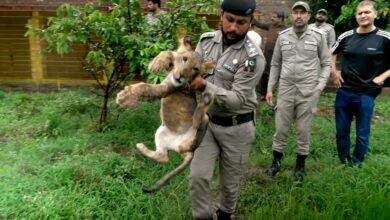Bird flu: Free range eggs return as clampdowns eased
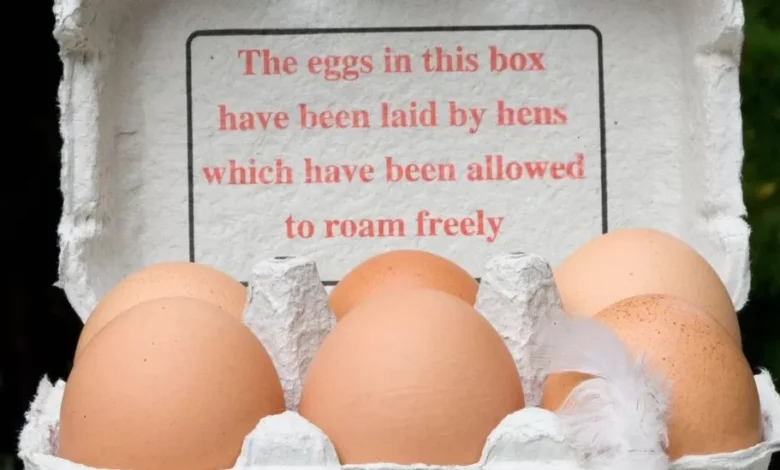
Free-range eggs will return to shelves within days as bird flu restrictions ease across most of the UK on Tuesday.
The move has been welcomed on animal welfare grounds but experts say the H5N1 virus is still circulating, posing an ongoing risk to wild birds.
The RSPB fears a repeat of last year’s “catastrophic” toll on breeding colonies during the world’s largest ever bird flu outbreak.
The government said wild birds faced ” a significant threat” from the virus.
The lifting of restrictions means eggs laid by hens with access to outdoor areas can be marketed as “free-range” again.
“This is good news for birds that have been kept inside over the winter months – and for consumers that want to be able to buy free range eggs,” said Robert Gooch CEO of the British Free-Range Egg Producers Association.
“But some farmers are feeling a sense of trepidation given bird flu is still around in wild birds.”
Free-range egg prices have risen over the past 12 months due to egg shortages driven partly by bird flu but chiefly by farmers quitting because of poor prices from retailers, he added.
The easing comes as seabirds return en masse to the UK coast to nest.
“The problem has certainly not gone away for wild birds,” RSPB director of advocacy and policy Jeff Knott told BBC News.
“Too often the impacts on wild birds – which are incredibly severe – get forgotten. We have to be careful we don’t sleepwalk into a catastrophe for our wild birds.”
Last year saw the biggest ever outbreak of bird flu in the UK and the world.
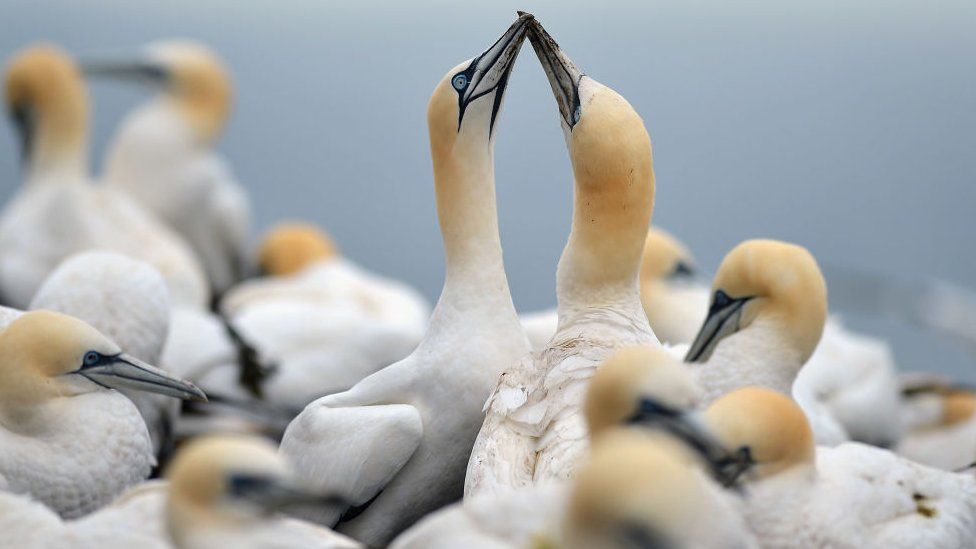
The H5N1 virus caused thousands of deaths in seabirds. Dozens of different species of wild birds were hit, including golden eagles, buzzards, herring gulls and gannets.
Mammals were also infected, including otters, foxes, seals and dolphins.
Meanwhile, there were hundreds of outbreaks at poultry farms, with four million farm birds culled.
Free-range poultry was ordered to be brought inside in England, Wales and Northern Ireland, to avoid the birds coming into contact with wild birds.
In Scotland the housing order was never implemented after the country’s chief vet said the evidence did not justify such a move.
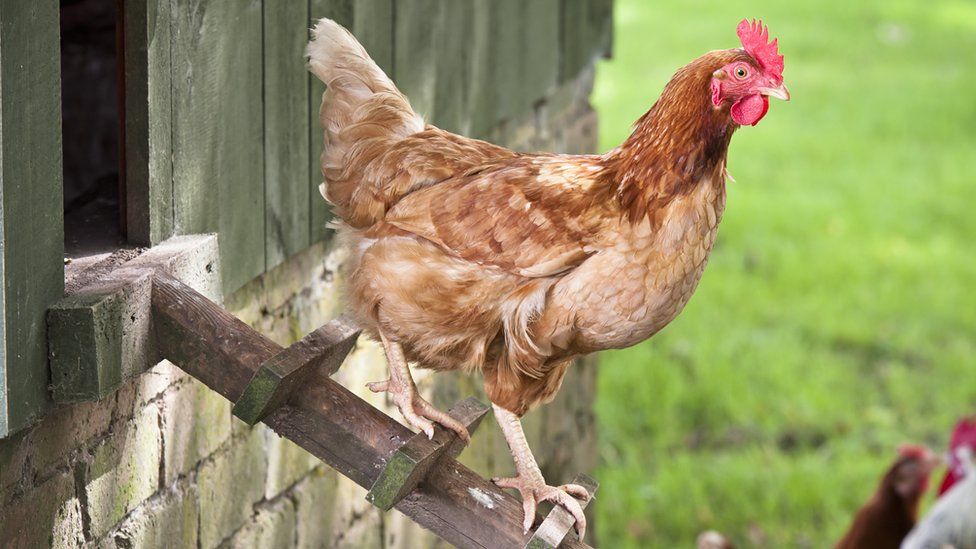
The threat of the virus is now deemed low enough to allow free-range poultry and captive birds to be kept outside across the UK, except in small pockets of England and Wales where protection zones remain in place.
Farmers will have to adhere to strict biosecurity measures and keep birds away from land where wild birds congregate.
Prof James Wood of the department of veterinary medicine at the University of Cambridge welcomed the move.
“Where the risk has reduced substantially because the epidemic in wild birds has come down so much over recent weeks it seems very reasonable to me to relax the housing order so that birds can go outside and be free range again and express their normal behaviour in parallel with much improved welfare,” he told BBC News.
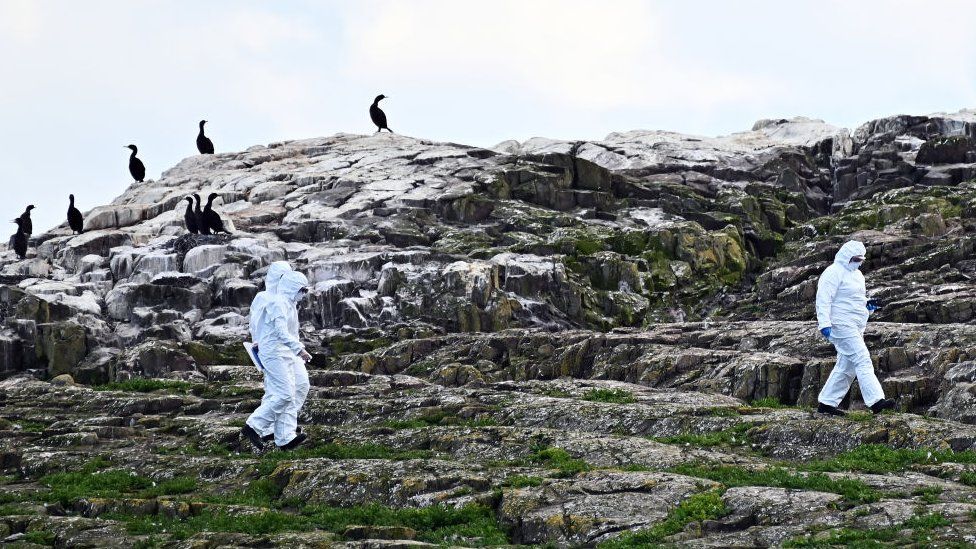
But the risk to wild birds is far from over.
Only last week, conservation experts warned that the H5N1 virus may threaten the survival of some bird species in Scotland.
A report found that thousands of migratory barnacle geese have been killed since 2012 with the virus a continuing problem for wild birds.
It was a waiting to game to see whether the disease would cause mass die-offs again or whether the birds have developed immunity and will be protected, said Jeff Knott.
“We’re waiting with baited breath to see whether we get a repeat of last year’s die off or not,” he said. “We are concerned.”
A spokesperson from the Department for the Environment (Defra) said the current outbreak “poses a significant threat to the UK’s wild bird populations”.
They said £1.5m had been invested in a research project to understand how the disease is behaving in wild and kept birds, and the outbreak would continue to be kept under review.
Members of the public coming across dead wild birds are asked not to touch them but to report them to the authorities.





